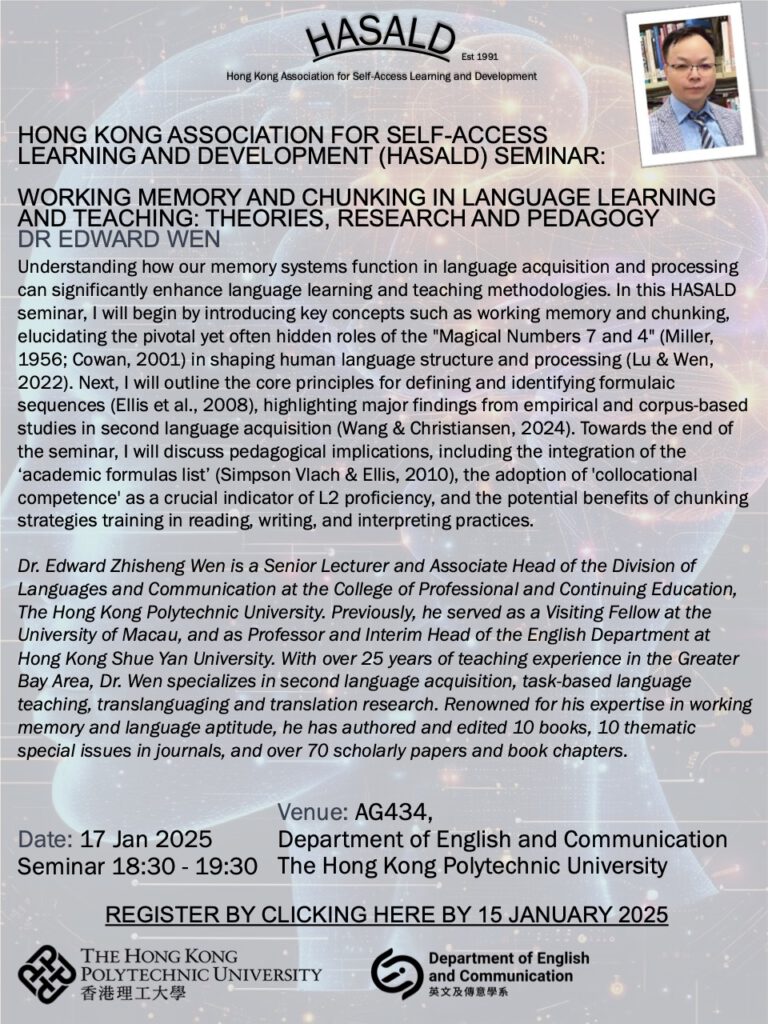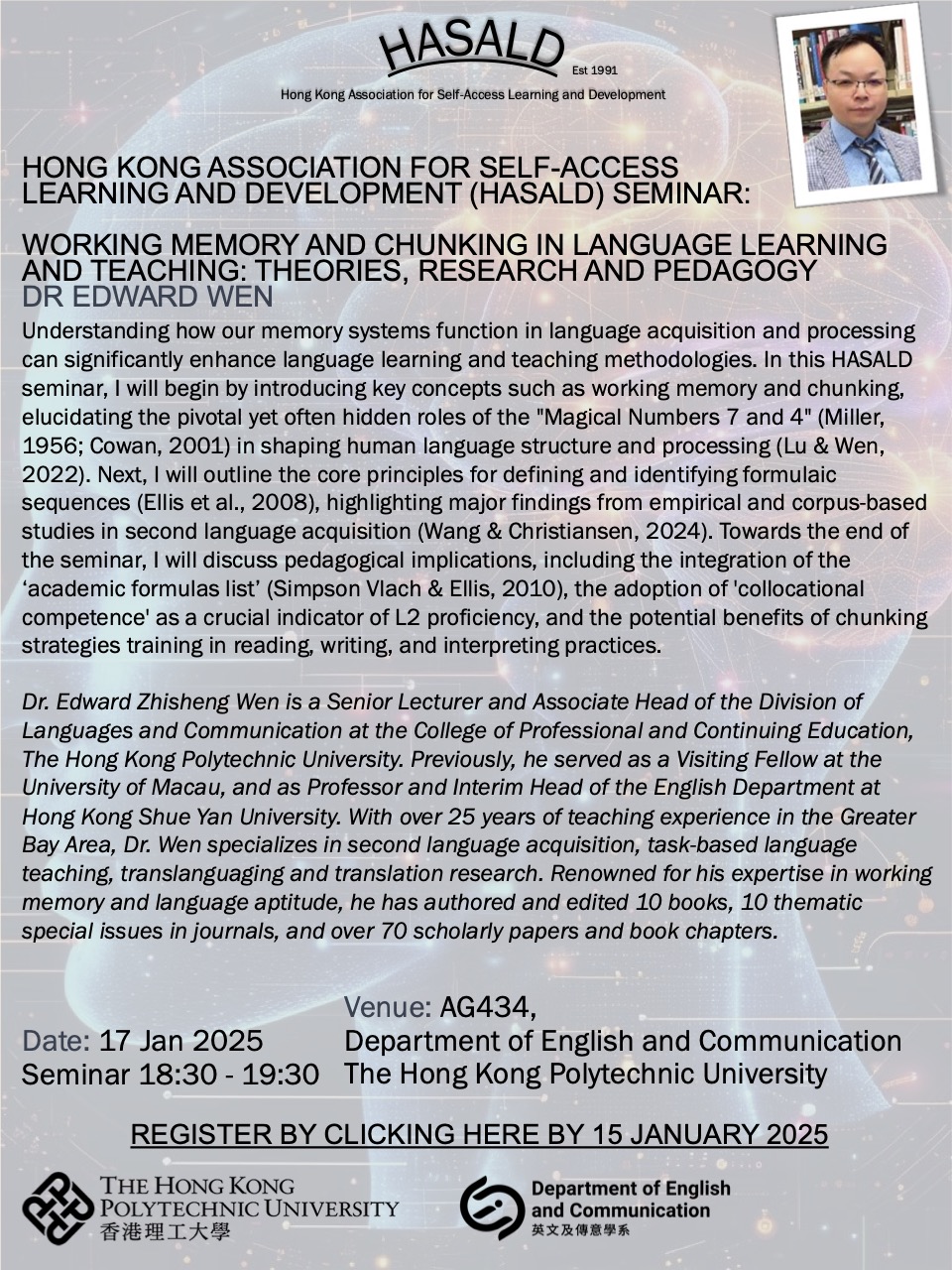Working Memory and Chunking in language learning and teaching: Theories, Research and Pedagogy
By Dr Edward Wen
College of Professional and Continuing Education, The Hong Kong Polytechnic University
Understanding how our memory systems function in language acquisition and processing can significantly enhance language learning and teaching methodologies. In this HASALD seminar, I will begin by introducing key concepts such as working memory and chunking, elucidating the pivotal yet often hidden roles of the “Magical Numbers 7 and 4” (Miller, 1956; Cowan, 2001) in shaping human language structure and processing (Lu & Wen, 2022). Next, I will outline the core principles for defining and identifying formulaic sequences (Ellis et al., 2008), highlighting major findings from empirical and corpus-based studies in second language acquisition (Wang & Christiansen, 2024). Towards the end of the seminar, I will discuss pedagogical implications, including the integration of the ‘academic formulas list’ (Simpson Vlach & Ellis, 2010), the adoption of ‘collocational competence’ as a crucial indicator of L2 proficiency, and the potential benefits of chunking strategies training in reading, writing, and interpreting practices.
Biography
Dr. Edward Zhisheng Wen is a Senior Lecturer and Associate Head of the Division of Languages and Communication atthe College of Professional and Continuing Education, The Hong Kong Polytechnic University. Previously, he served as a Visiting Fellow at the University of Macau, and as Professor and Interim Head of the English Department at Hong Kong Shue Yan University. With over 25 years of teaching experience in the Greater Bay Area, Dr. Wen specializes in second language acquisition, task-based language teaching, translanguaging and translation research. Renowned for his expertise in working memory and language aptitude, he has authored and edited 10 books, 10 thematic special issues in journals, and over 70 scholarly papers and book chapters.

